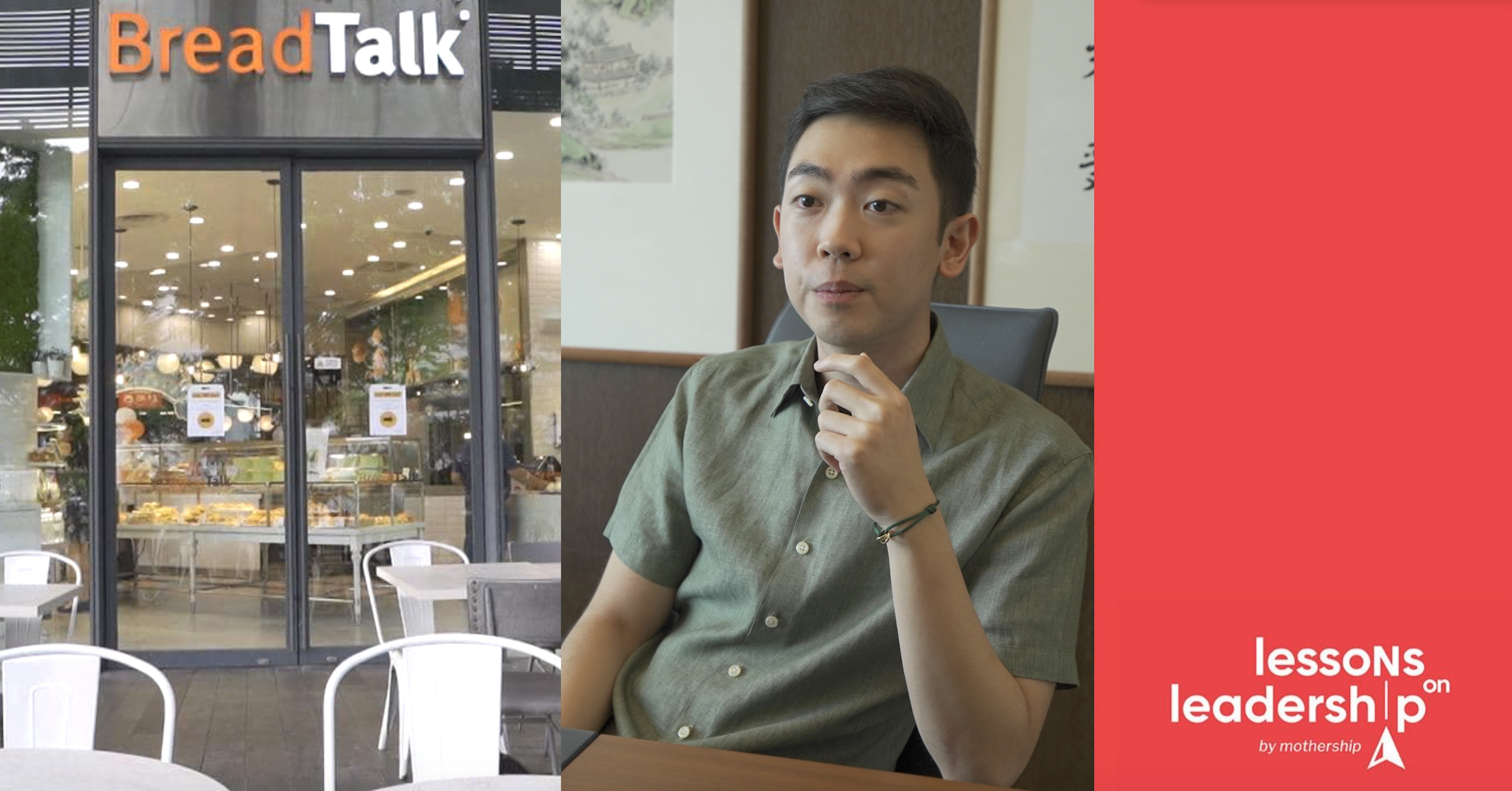Follow us on Telegram for the latest updates: https://t.me/mothershipsg
Jonathan Quek is very nervous.
At least, that is what I have been told.
The 26-year-old is being subjected to his first ever media interview as the second generation leader of homegrown bakery chain BreadTalk, which is celebrating its 21st anniversary this month.
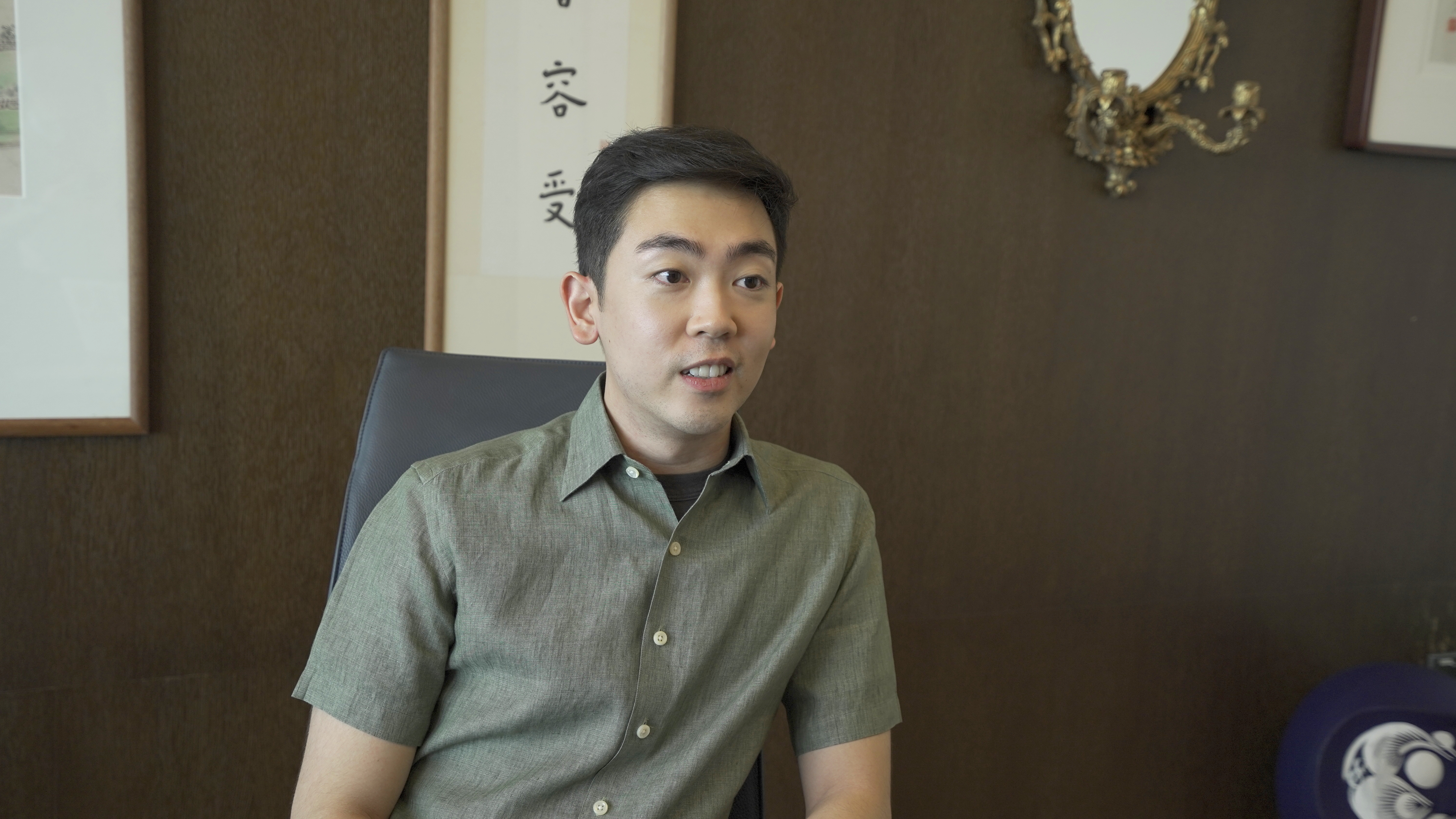 Photo by Hor Tengteng
Photo by Hor Tengteng
In addition to its eponymous bakery, the multinational company also houses a bevy of F&B concepts under its portfolio, including Toast Box, Food Republic, Thye Moh Chan, and Din Tai Fung.
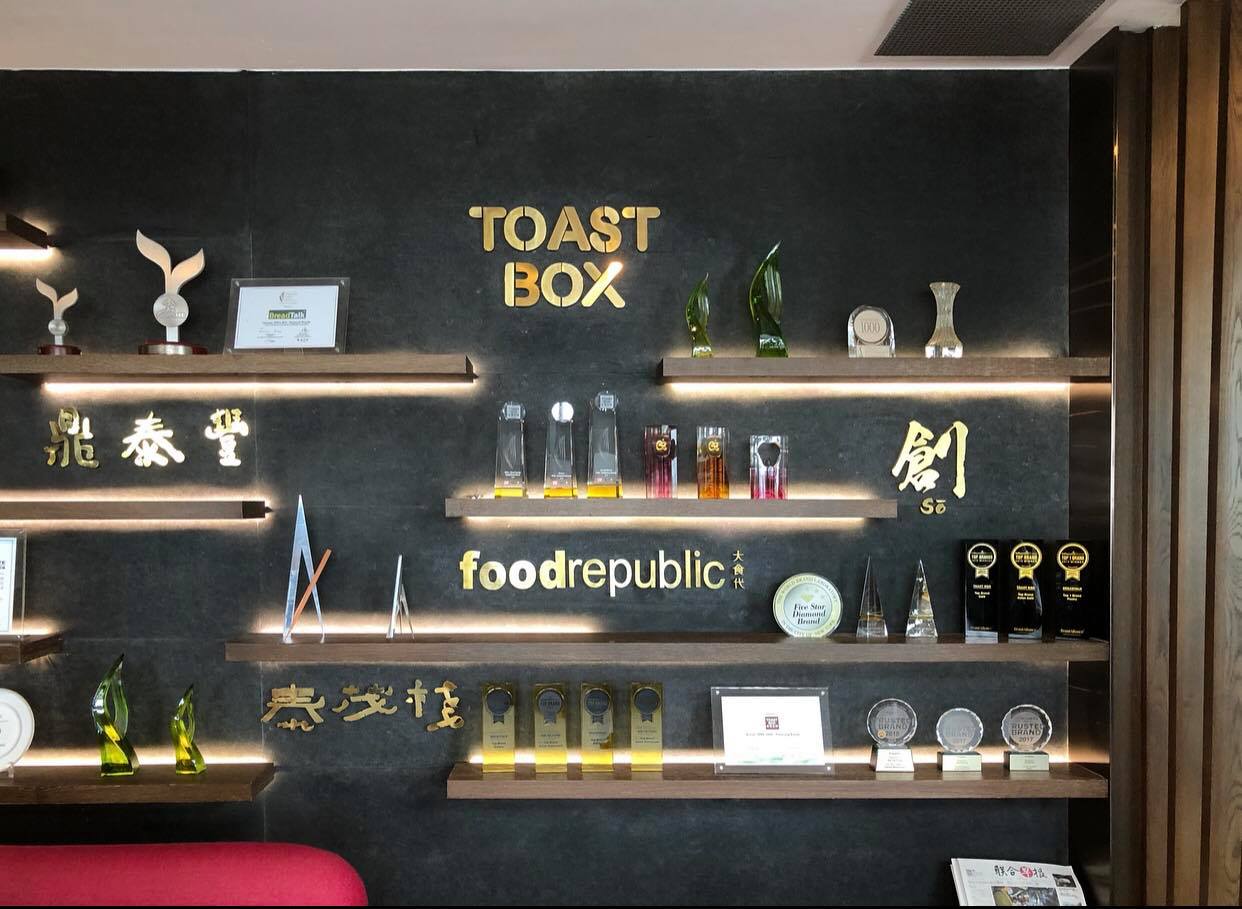 Photo by Mandy How
Photo by Mandy How
Despite any apprehension he might have, Jonathan settles in with ease at the chairman's office (i.e. his workspace), an environment that he appears to have grown familiar with.
A bird's-eye view
The second child to BreadTalk Group's founders George Quek and Katherine Lee, Jonathan officially joined the company in 2020, fresh out of his Master's in real estate.
In the initial months, he spent his days in the central kitchen and being stationed at outlets, as well as being trained in the company's operations.
However, since being promoted around end-April 2021, the AGM (assistant general manager) has been actively involved in numerous functions, such as operations, real estate, and human resources, to name a few.
Unlike a normal person, Jonathan appears to enjoy working on weekends, where he visits the bakeries on a rotational basis to communicate with the staff, as well as to hear from customers directly.
"I feel like when I'm in the storefront, all of these frustrations or nitty-gritty corporate details, [they are relegated to] the back of my head," the 26-year-old tells us.
We'd say you can get the same effect with a good Netflix show, but that was before we found out that like most millennials, he does spend time on the streaming platform too. Other pastimes include reading and cooking (Italian and Korean), if anyone wants to know.
We're getting to the elephant in the room now: with his position at the top of the corporate ladder, it's hard to ignore Jonathan's relative youth and inexperience.
His bird's-eye view also stands in stark contrast to his similarly aged peers', where most would only have their foot on the bottom rung.
But if you think Jonathan's age might be an impediment to what his role entails, the successor would disagree.
"I think it's an asset because we're always trying to stay fresh and young. And I think my siblings and I, we have tried to, we have done quite a bit to revive the brand."
And yes, siblings: older sister Weirou is 28, while younger brother Matthew is 25.
Both are intimately involved in the business as well, with Weirou's influence in the R&D (research and development) department and Matthew "starting to get his hands dirty" with Toast Box's operations.
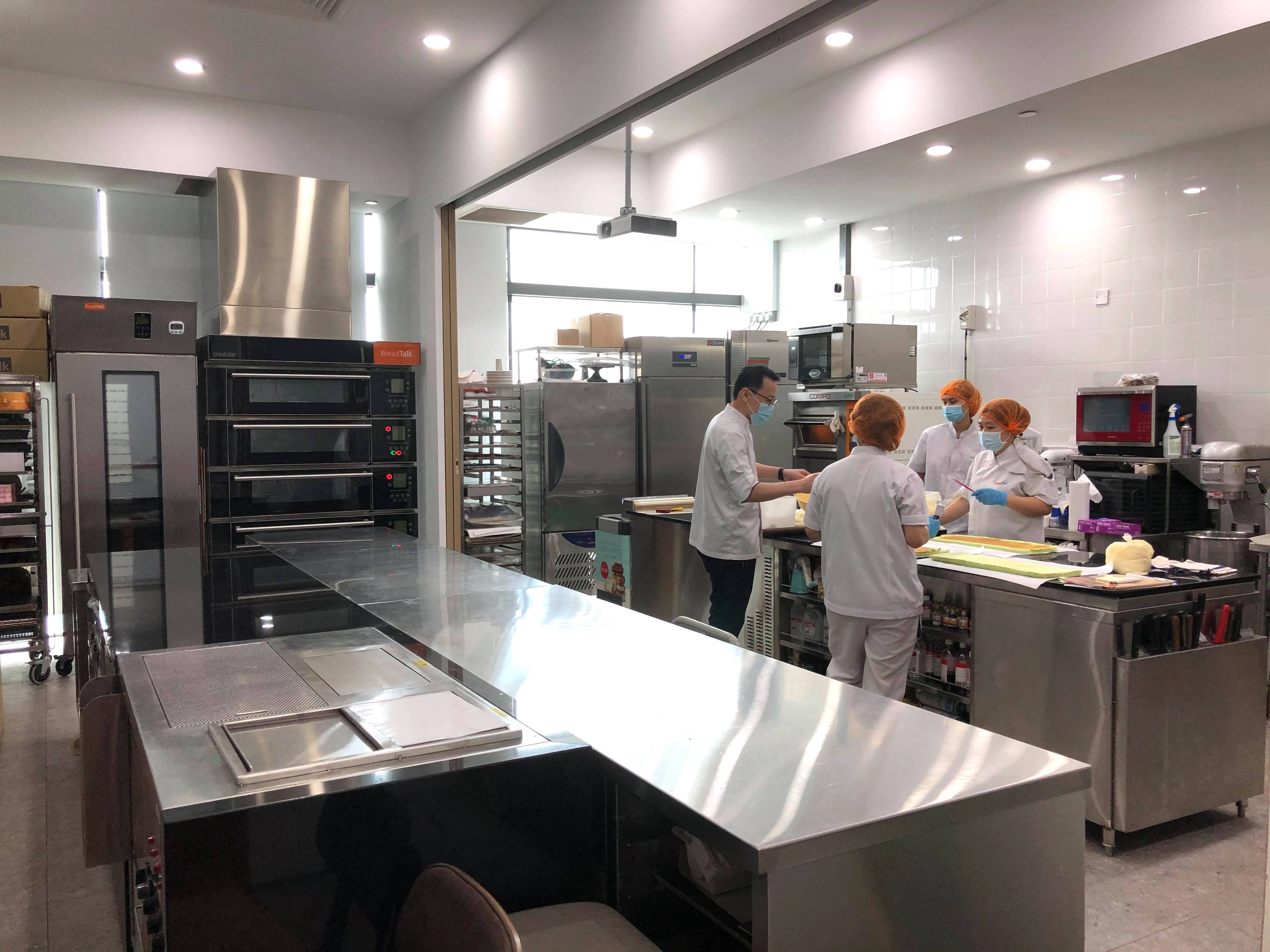 The R&D kitchen. Photo by Mandy How
The R&D kitchen. Photo by Mandy How
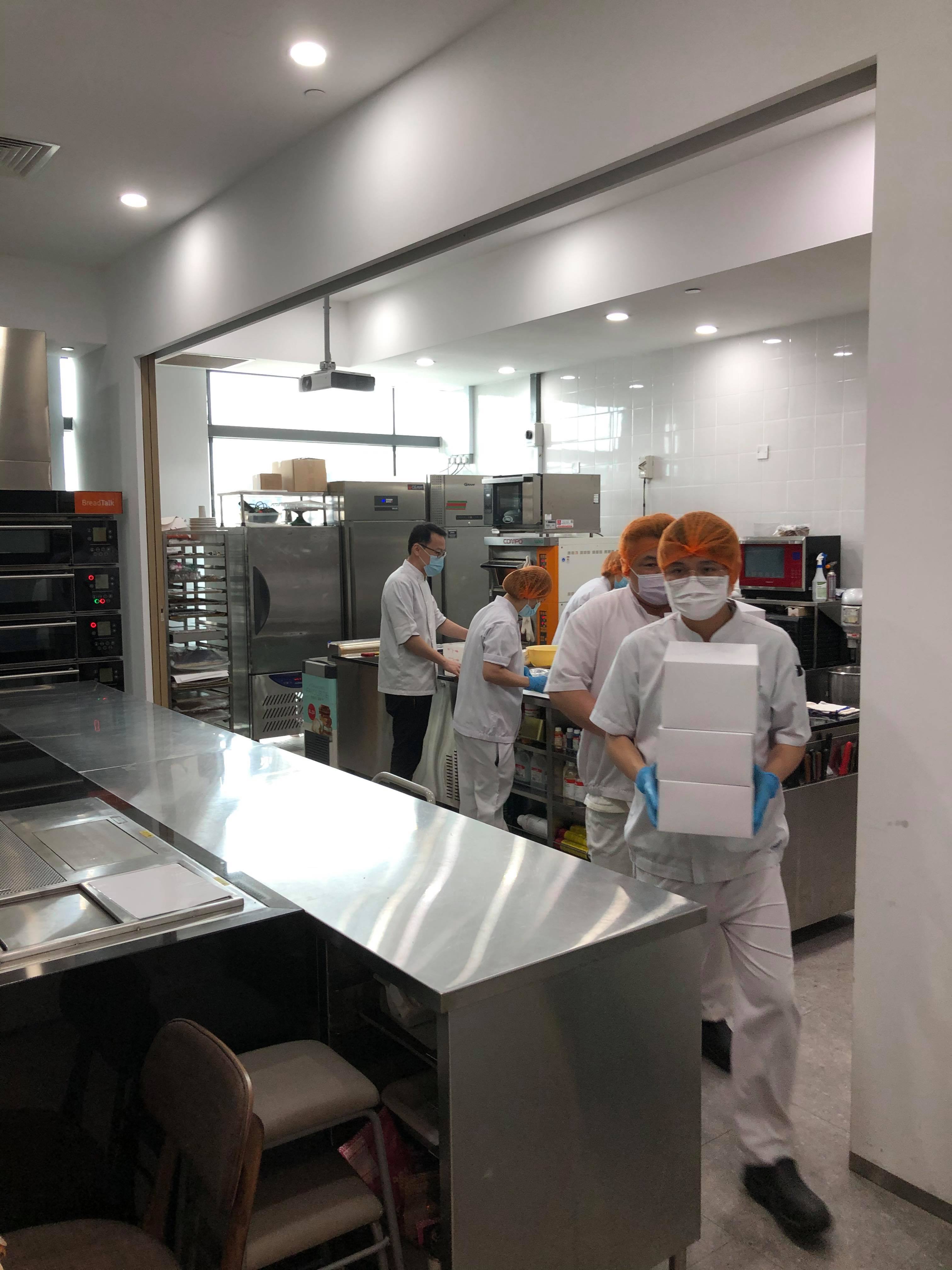 Photo by Mandy How
Photo by Mandy How
Jonathan continues on the topic of attracting younger consumers, revealing that the company has been placing a lot more emphasis on digital marketing in this respect.
This comes as a crucial move, since BreadTalk's long-time customers currently form the bulk of their patrons:
"Because I think a huge base of our customers, they've been with us since day one, [...] and so they've grown from 20 to 30 [years old] to now 40 to 50," he explained.
When it comes to managing older staff...
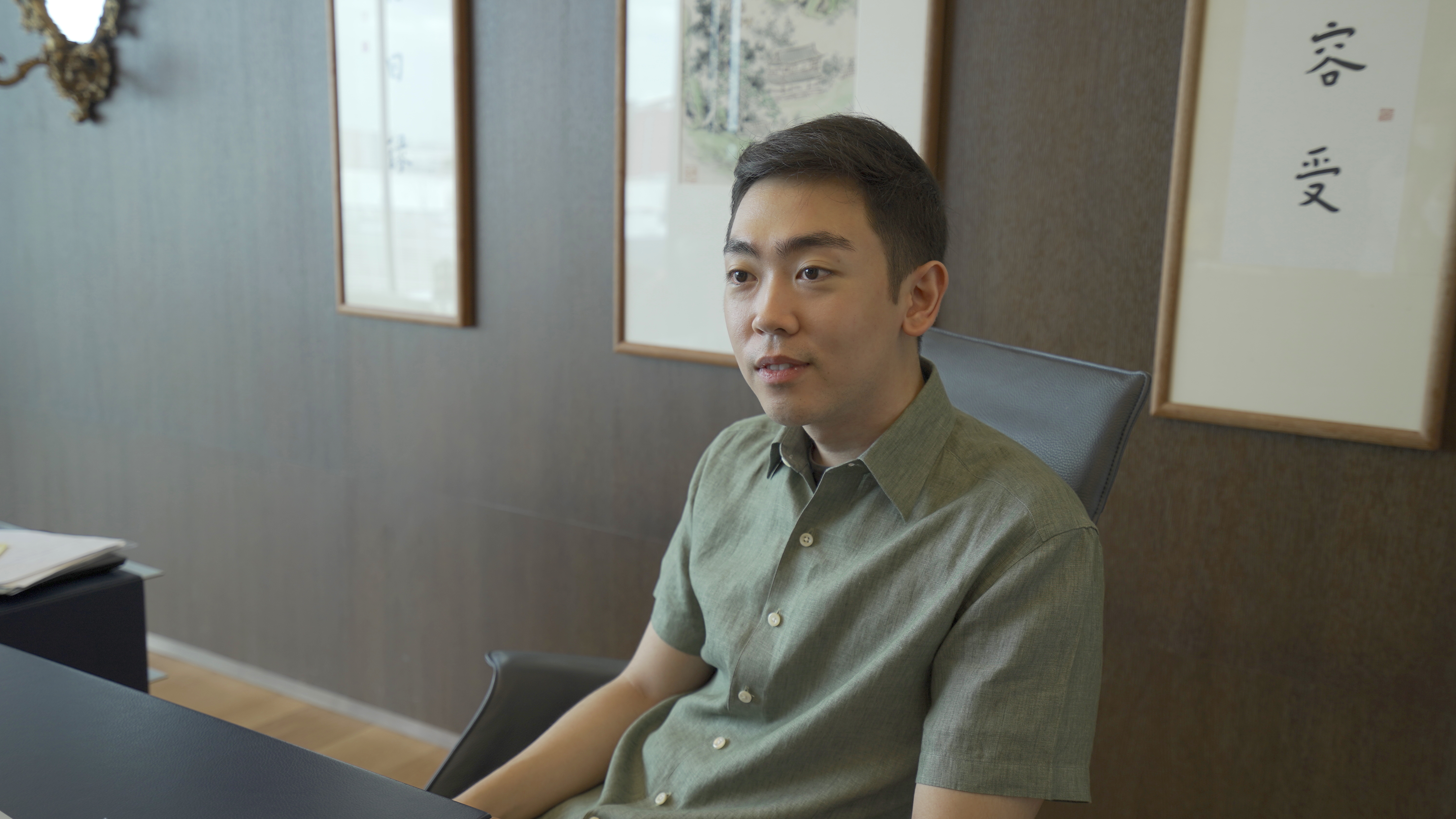 Photo by Hor Tengteng
Photo by Hor Tengteng
It is no mean feat for a behemoth of an organisation to stay nimble and relevant, especially when trends are more fleeting than ever and new brands are popping up like an intense whack-a-mole game.
But Jonathan has plenty of help, of course.
He is quick to acknowledge one of his mentors in particular: 49-year-old COO (chief operating officer) William Cheng, who has spent the past 19 years with the BreadTalk Group.
Through Cheng, the young successor has learnt the importance of making mistakes—and learning from them.
"[...] You learn by doing. And I think that has stuck with me, because he [Cheng] was always there to support me and said, 'Even if you make a mistake, at least now you have us all, the older team to come and help to clean up a bit of the mess. But try not to make too many mistakes.'"
As for his personal working style, Jonathan confesses that he tends to make decisions "a little slowly" due to his more rational approach, preferring to take in all the information available before arriving at a course of action.
He does not have to shoulder the weight of decision-making alone, however:
"So I would always call for team discussions because I don't like making a decision from the top down. I'd rather get it seeking the professional opinions of everyone in the team [...]."
There is also not much of a hurdle that Jonathan presents when it comes to "managing" older and more experienced staff.
He paints me a polite, wholesome picture, quite contrary to the awkward and politicised situations that my imagination has cooked up.
"I think in my time so far, I've been very lucky to have, in my interactions with all these older—I wouldn't say older, but more experienced staff, they've always been very willing and open to share their experience and knowledge with me."
He adds shortly after, in a less serious tone: "Maybe also because my mom is hawking around, like 'Make sure you teach my son well.'"
The online space: a minefield
But there is one aspect of the business that Jonathan is decidedly more familiar with—the digital realm.
I carefully broach the subject of the brand's online reception, saying that I've noticed some social media users leaving negative and unconstructive comments even on a neutral piece of news, such as a product launch.
For someone who's sitting through his first media interview, Jonathan handles this relatively sensitive question in a very savvy (read: safe) manner:
"[...] It gives us a chance to reflect inwards and to see what else can we do to improve on our, let's say, product strategy. What else can we do in terms of our service. How do we not only retain, but also attract new customers."
When I probe a bit deeper on his personal feelings, the AGM admits that he is "sometimes disheartened," as the commenters haven't seen "the amount of hard work that our teams put in."
But on to a happier topic: Jonathan's youthful advantage has also manifested in two new concepts by the group, at a time where the pandemic continues to exert its grip on the world.
Butter Bean and Charlie Tea were launched in the second half of last year, with the former specialising in modernised local eats and the latter pairing pastries and bakes with bubble tea.
"Those were fun projects led by my dad, my sister, and us kids actually," Jonathan replies when I ask if he has any plans for new concepts under his leadership.
The family saw an opportunity to "create something fun" that also allows them to tap into a different customer base, and had spent the circuit breaker period researching and developing products for the two brands.
And with Butter Bean recently pivoting into being a halal-certified establishment, the group can now serve another segment of the population that they were previously unable to.
Cashier duties
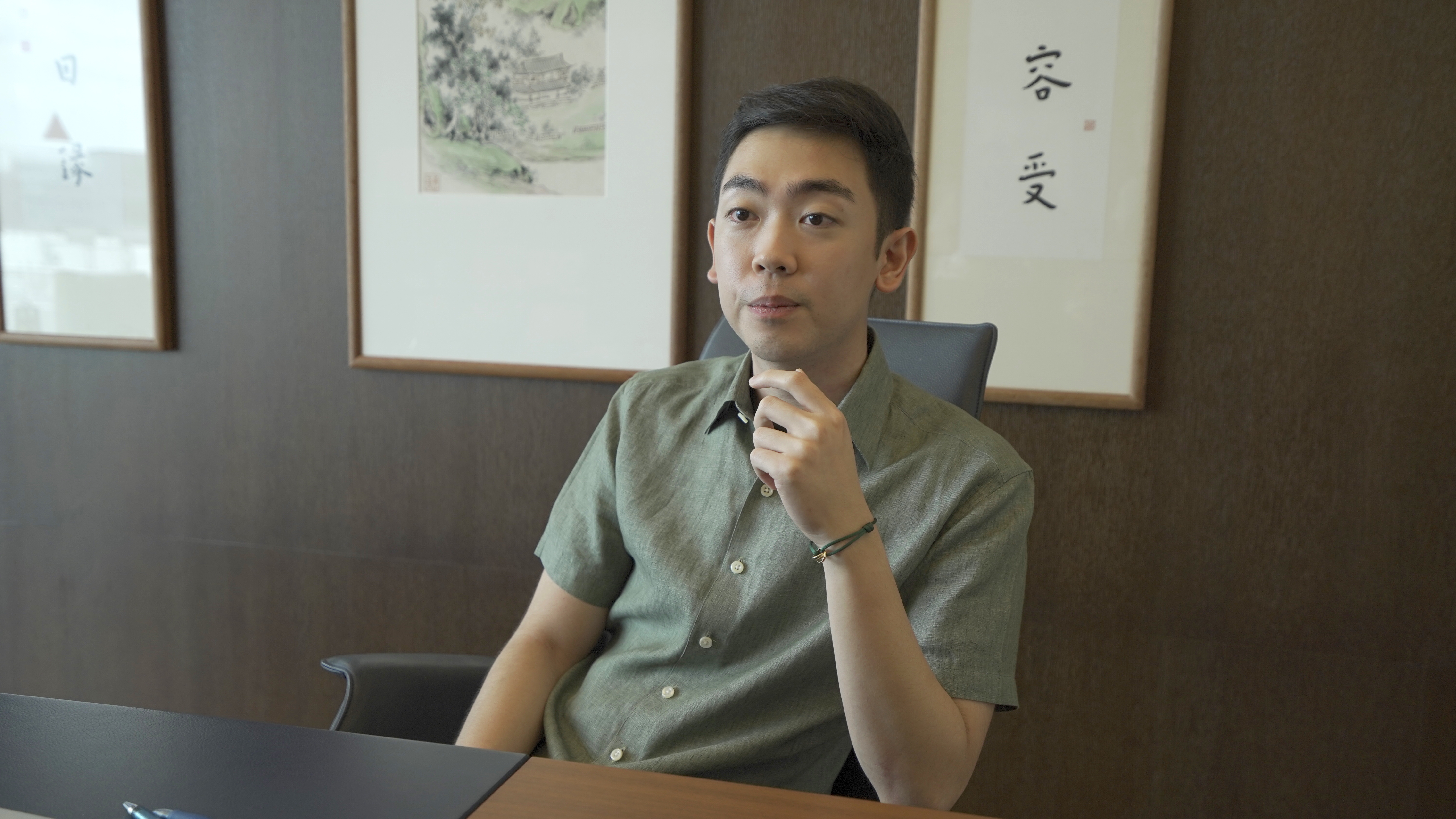 Photo by Hor Tengteng
Photo by Hor Tengteng
Although Jonathan has only been holding the reins for the past one year, he's already been along for the ride (so to speak) for about a decade or so.
He recalls his first job at the now-defunct Wisma Atria outlet, cashiering and packing bread.
According to the AGM, breakfast and after-work hours were the most hectic for them.
"Not the fondest memory because a lot of um, fierce customers then, and I was very very slow. But the reason why they placed me there was to experience how it is like to be in high-volume store."
Subsequently, while he was still in Secondary 4, Jonathan took up another stint at Din Tai Fung, where he formed his definition of exacting service standards.
Oldest child Weirou went through a similar rite of passage, working in Thye Moh Chan, BreadTalk, and Toast Box as a front-facing staff.
"She was actually more hands-on," Jonathan says. "I think it was a good learning experience for us cause I believe it's always good to start from the ground up."
Working for mum and dad
This version of Jonathan that I'm speaking with, however, comes across as incompatible with the one that existed just a few years earlier.
In a good way, I mean.
Knowing what was already planned out for him, the heir apparent dreaded coming home from the U.K., where he was studying in London's Cass Business School.
He therefore decided to "buy [himself] some more time" by signing up for a Master's in real estate.
"In terms of the dreading part, it was more like, 'Oh, I have to grow up,'" he clarifies with a laugh. "Not like 'Oh I have to come and work for mum and dad."
His clarification is in part prompted by my curiosity pertaining to having a high-flying career laid out for one.
"[I feel a] tremendous pressure, actually, every day. I think what my parents have accomplished today, it's like you said, big shoes to fill."
But how would things have unfolded if he were not at all interested in the F&B industry? Would such a position be foisted upon him, regardless?
As it turns out, my questions were moot, considering the environment that Jonathan and his siblings grew up in.
"[...] We kind of knew the ins and outs of the business, we were always around different business meetings. So in the sense that when we all started, we were able to bypass the really steep learning curve."
Nonetheless, there appears to be a genuine interest in taking over the family business, whether by nature or nurture.
This is corroborated by the fact that parents George and Katherine have made it clear that it was always an as-long-as-you're-interested situation.
Jonathan adds: "They've never forced us to [take up our current roles]."
When I ask for some of the biggest lessons imparted by his parents, work-wise, Jonathan pauses for a bit before he answers.
At this point, the AGM switches to Mandarin for a bit—one of the rare instances in our conversation that he does so.
"One thing that my dad always taught us would be to, 做生意要有诚心,要有道德。So it's kind of like, you have to have have a lot of sincerity and hold yourself to higher moral regard when it comes to business dealings, or even just in life per se."
What this translates to, concretely, is that it's "ok" to hold the shorter end of the stick, with founder George going as far as to see it as a "win-win situation."
 Photo by Mandy How
Photo by Mandy How
Jonathan relays the rationale behind it for me:
"Because in the short term, they might enjoy more, but in the long term, they'll always come back to me with the thought that 'Oh, I've had a good working experience together with BreadTalk. I don't mind doing businesses or coming back to them to explore more opportunities.'"
Far-sighted as it might be, even such a work ethic is unable to shield them from the adverse effects of the Covid-19 pandemic.
The company was delisted last year, in order to focus its management and resources on business operations instead.
"I think it just sparked a little bit more passion, or determination and perseverance [in me]," Jonathan says of the circumstances.
It's an understated answer that glosses over what I feel must affect him on a deeper level, but perhaps these will soon be in the rearview mirror of the journey that is to come:
"They've [parents George and Katherine] worked really hard for the past 20 years, and now I think part of it is on us three kids to continue to help grow the business for them."
Watch the Beyond The Glass Door video with Quek on Facebook:
Lessons on Leadership is a Mothership series about the inspiring stories of Singapore’s business leaders and entrepreneurs, as well as the lessons and values we can learn from their lived experiences.
Top images by Hor Tengteng
If you like what you read, follow us on Facebook, Instagram, Twitter and Telegram to get the latest updates.
